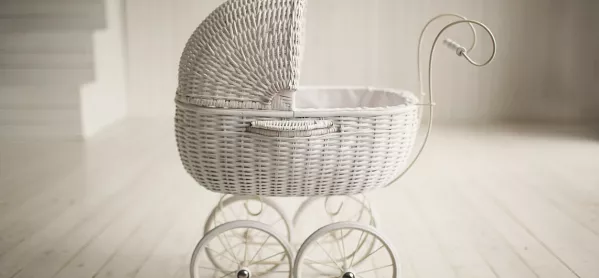On a regular day, every student’s desk should be adorned with the materials for class. But today is not a regular day. Today, my students must make room on their desks for dozens of baby dolls.
It’s that time of year: teaching teens to be parents by making them look after fake babies. And get this: one of my students actually is a mother, but she was still assigned a baby doll for a month. She couldn’t believe the school was grading her on being a “mother” to a fake doll while she was caring for a real baby at home. Neither could I.
I look to England with envy. The recently-announced move that sex and relationships education is now compulsory in all schools is an exciting opportunity for England to set an example for the rest of the world. But I understand it is not universally popular. And I understand how it could fail to live up to the promise.
So perhaps it’s useful for me to outline how bad things could be by using the US as an example. Here’s a cautionary tale to learn from.
Unrealistic education
The health classes at my school teach a parenting unit during the spring term. This is typical of many schools in the US. For decades, American children have been assigned baby dolls for a month in order to teach them about the responsibilities of parenting.
Teachers will look for their students in the cafeteria or hallways, deducting points if the students are not attending to their baby dolls.
Of course, this experience has nothing to do with parenting for real. Real lessons of early parenting would include functioning on little sleep, feeding a baby and changing a diaper. The baby dolls do not teach any of these lessons. If anything, they show a false image of how “easy” parenting is.
Additionally, these baby dolls create a distraction in the classroom and the school. Students do not actually treat their baby dolls like real babies. They dress them up in silly outfits and put them in funny poses. They are teenagers and they are making light of the assignment. They cannot possibly take a baby doll seriously.
This silly assignment is just one example of how the US avoids addressing real issues about sex and relationships in schools. Teachers prefer the baby doll assignment because it seems safe and non-controversial. But this type of education does not work.
‘If England implements effective SRE, it will eventually see results’
The United States has higher rates of teen pregnancy and lower use of contraception than other industrialised nations. Only 10 per cent of all US schools have a sex education program that includes lessons on contraceptive methods, sexual orientation and sexually transmitted diseases. Sex education is required in less than half of all the states in the country.
Research shows this does not work, and the country is suffering as a result.
As England prepares to write and implement curriculum for compulsory sex and relationship education, I urge the country to look at the US as a cautionary tale. Qualified and experienced educators should be tasked with writing the curriculum, not politicians or religious leaders.
They should review the vast amount of research that outlines what programs are effective in promoting sexual health among teenagers. If England implements effective, evidence-based sex and relationship education across the entire country, it will eventually see results in lower teen pregnancy and STD rates, and stronger and safer relationships. Perhaps then, America will follow.
Rebecca McGrath is a high school teacher in New Jersey, US





